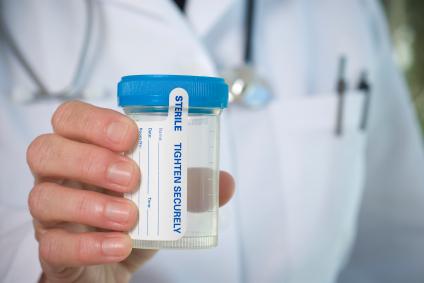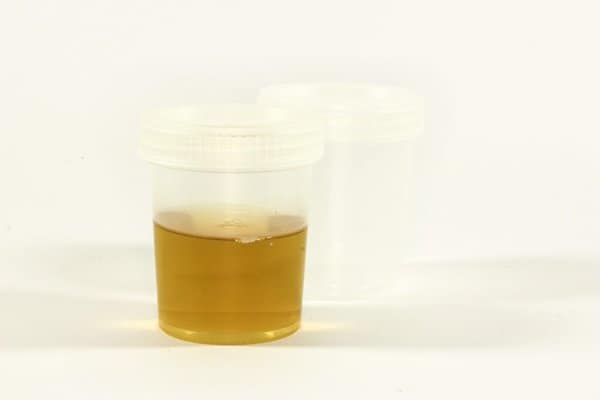These days, we see an increasing number of users of illicit drugs all over the country. With this said, the methods to evade drug tests also evolve. As long as users are there, there will always be people who will try their best to get their way through the system. Among the alternatives they try include using machines that turns positive urine with a clean one.
Another threat to drug testing is the use of synthetic urine. Can labs tell the difference between real and synthetic urine, you may wonder. Let us see.
How do labs detect synthetic urine
Synthetic urine, as suggested by the name, is fake urine. It is mainly composed of different chemicals, creatinine, yellow coloring. Other brands contain uric acid which mimics the characteristics of urine. Synthetic urine is also used mainly for testing the effect of urine on certain products such as agents, mattresses, diapers, and even medical devices.
Note that not all companies that conduct drug testing are equipped with reliable synthetic urine detection capacities. This includes pH and validity tests. pH tests help in determining whether or not the urine sample has been diluted. Validity tests, on the other hand, include looking at the creatinine and temperature levels for the sample urine.
Can labs tell the difference between real and synthetic urine?
In some locations, many laboratories will not be able to detect the use of synthetic urine. For those that do, synthetic urine can be spotted by determining the presence of biological compounds which are not generally available in synthetic urine. To possibly combat these attempts to cheat a urine test, more and more laboratories and companies have created an enhanced detecting and screening technology by looking at additional biological markers.
Synthetic urine has also been commonly used for alternative forms of medicines and experiments, and even for drug testing to enhance the efficiency of testing. It is also being used to outsmart and pass drug tests.
Does synthetic urine work for drug test?
Yes, even though this method may not be 100% fool-proof, synthetic urine will prove useful to individuals who are desperate enough to avoid getting detected. Other options which may not really be reliable focus on urine dilution. Some have used lemonade, dog urine, and other household products while trying their best to achieve an inconclusive or negative results.
Fake or synthetic urine is equal to artificial urine which can prove to be a good alternative method to potentially avoid a positive drug test result. The design of synthetic urine mimics real urine, containing the same components. Ammonia, creatinine and nitrates can also be found in synthetic urine. In fact, even the odor of synthetic urine is also the same of that of a real, human urine. Producers of synthetic urine also ensure that this type of urine substitute cannot be detected easily even to drug testing laboratories.
Does synthetic urine work for lab tests?
Fake urine was used primarily in laboratories that are used for product testing, ideally for quality control for products like diapers. These days, synthetic urine is available commercially to illegal drug users who are looking at potentially fool-proof ways to pass a drug test and easily avoid detection. It has become quite easy to get a sample of fake urine online, at a very affordable price. All you need to do is to search online, and you will see some options readily available.
As the presence of employees that use drug continue to increase, the use of synthetic urine also increases. While drug testing companies come up with effective methods for drug testing, drug users who attempt to avoid a positive test have become creative as well.
Choosing good synthetic urine
When looking for options on synthetic urine, it is important to look into the vital ingredients that should be present. It should contain creatinine, uric acid, urea, and pH balance. The gravity should also be specific ranging between 1.005 and 1.030. Select synthetic urine that can be reheated with reliable, accurate temperature strips. After all, temperature is a very important factor that will help prove urine quality.
The ideal temperature for a good quality synthetic urine range within 32 to 38 degrees Celsius. Anything beyond this range may already appear suspicious. Unless you can prove that you are having a fever, a higher temperature might fail your test.
The synthetic urine should also look natural being yellowish in color, with urine odor. If you submit urine sample that is colorless or odorless, the technicians in the testing company may ask you to submit urine again. A good fake urine needs to contain B-vitamins so as to have some yellow color.
How does fake pee work?
It is important to follow the following steps to avoid questions and suspicions.
- Place the synthetic urine sample inside a microwave for a period of 10 seconds, heating the sample at the required temperature. Samples that are below 90 degrees or over 100 degrees in Fahrenheit may not be accepted.
- As you pour your synthetic urine into the bottle, be quick, since the urine may lose its temperature within just a few seconds.
- You may also want to use a urine belt and a plastic tube, or a prosthetic penis device that will help hide it beneath your clothes.
- Make sure to get only the most updated and latest formulas that will mimic the components of real urine.
- If the laboratory conducting the test requires you to be supervised as they collect the samples, it is recommended to avoid trying to take the synthetic urine container out, or this will result to a failure of the test.
Note that the best synthetic urine kits for drug tests usually come in a plastic flask where you can mix the urine and hold it for the collection. You have the option to choose between powdered or pre-mixed synthetic urine. It also comes equipped with a temperature booster that helps in maintaining the urine temperature.
Conclusion
Does synthetic urine work? Yes, to a certain degree. If the laboratory that will be conducting the urine test has not employed technology and mechanisms that can detect synthetic urine, then there is a good chance of passing. At times, however, synthetic urine does not work. Also, it is important to take into consideration the risks that are potentially involved. For example, if you fail to mix the product accordingly, if it is not hidden well, or if it is not at the right temperature, you may end up failing the test. Make sure to follow the instructions on the kit accordingly to improve your chances of passing the test using your synthetic urine sample.
More reading:
- XStream Synthetic Urine Review
- UPass Synthetic Urine Review
- Urine Luck Review
- Clear Choice Sub Solution Review
- Powdered Urine vs. Synthetic Urine
- Monkey Whizz Review
- Test Clear Powdered Urine Review
- Can Labs Detect Synthetic Urine? (2022)
- How to Hide Urine for a Supervised Drug Test
- How to Keep Pee Warm for a Drug Test
- 5 Best Synthetic Urine Kits Reviewed












